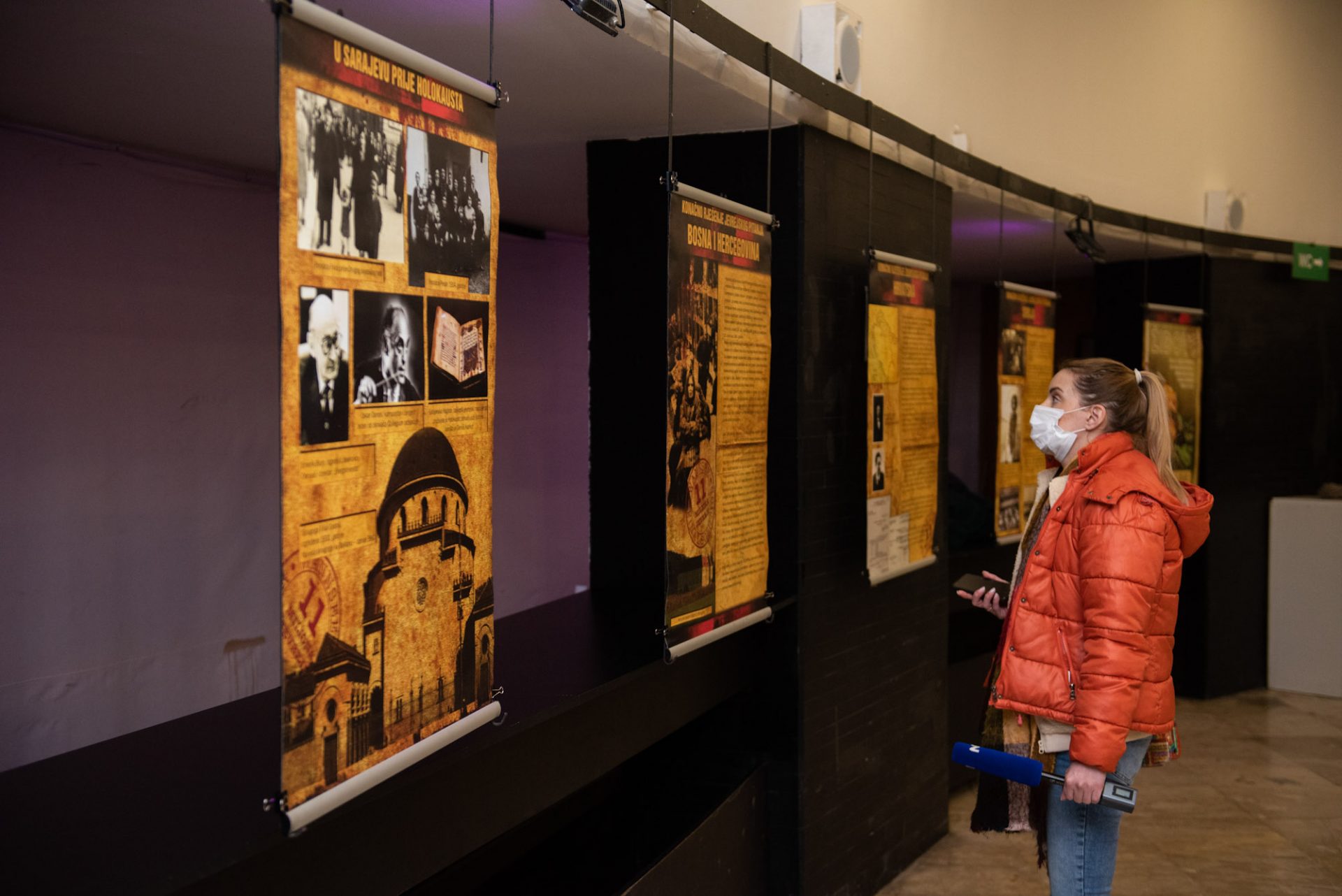
The Post-conflict Research Center (PCRC), Educator’s Institute for Human Rights (EIHR), the forumZFD, the Haggadah Sarajevo Association, and the Bosnian Cultural Center marked International Holocaust Remembrance Day in Sarajevo today and the 80th anniversary of the Wannsee Conference.
As part of the commemoration program, we launched the pedagogical manual “Holocaust & Peace – Lessons from the past for the future.” This manual provides a practical, didactical guide for educators and teachers with modern teaching techniques, resources, and lesson plans for creating new social and learning spaces for the exploration of history and the causes of violent conflict, as well as for preventing and combating revisionism and denial.
“This manual is the result of many years of cooperation that the PCRC is building with the Educators Institute for Human Rights and the ForumZFD, and is unique in the region in its topics. Our goal is to help new generations of young people and educate them in the spirit of tolerance, coexistence, and interreligious cooperation,” said Velma Šarić, founder and president of PCRC.
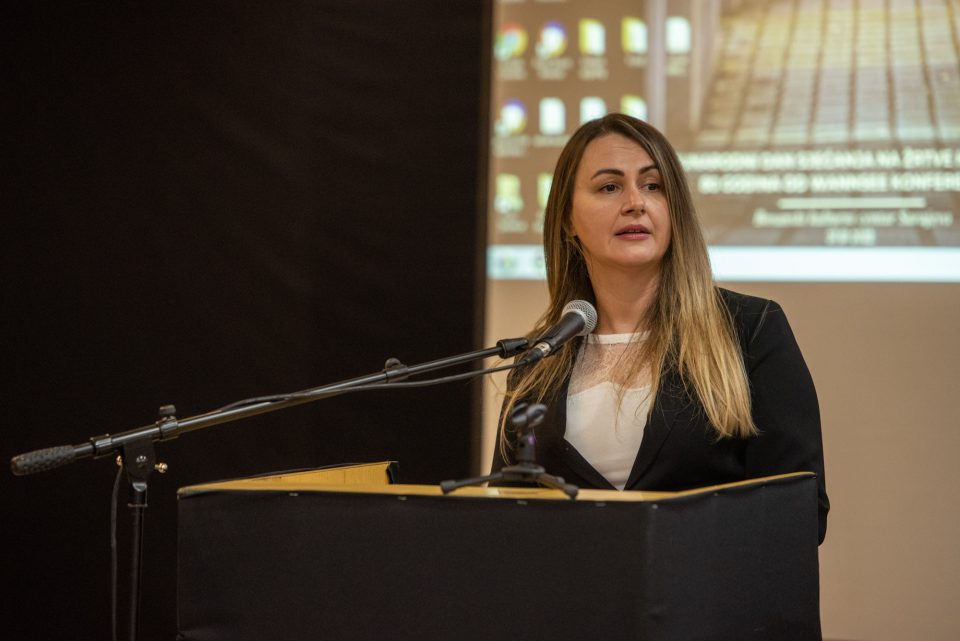
According to Šarić, the manual “Holocaust & Peace – Lessons from the Past for the Future” promotes the importance of historical memory and dialogue in an innovative and inclusive way.
“The formal education system in BiH and the region is very reserved when it comes to history, not only of our country but also of the Holocaust. This is why we are glad that we managed to organize the manual’s launch on International Holocaust Remembrance Day and the 80th anniversary of Wannsee Conference,” Šarić said.
The pedagogical manual was created in cooperation with educators and professors throughout BiH, and Šarić points out that the next steps will be to make the manual part of formal and non-formal education in our country and region.
In addition to Šarić, the authors of the manual include Sarajevo Mayor Benjamina Karić, Kathleen Kavalec, Head of the OSCE Mission to BiH and several local professors. The authors addressed the audience at today’s International Holocaust Remembrance Day program.
“A history of the Jews of this city is a history of all of us,” said Karić, emphasizing that only by remembering history can we build a better future.
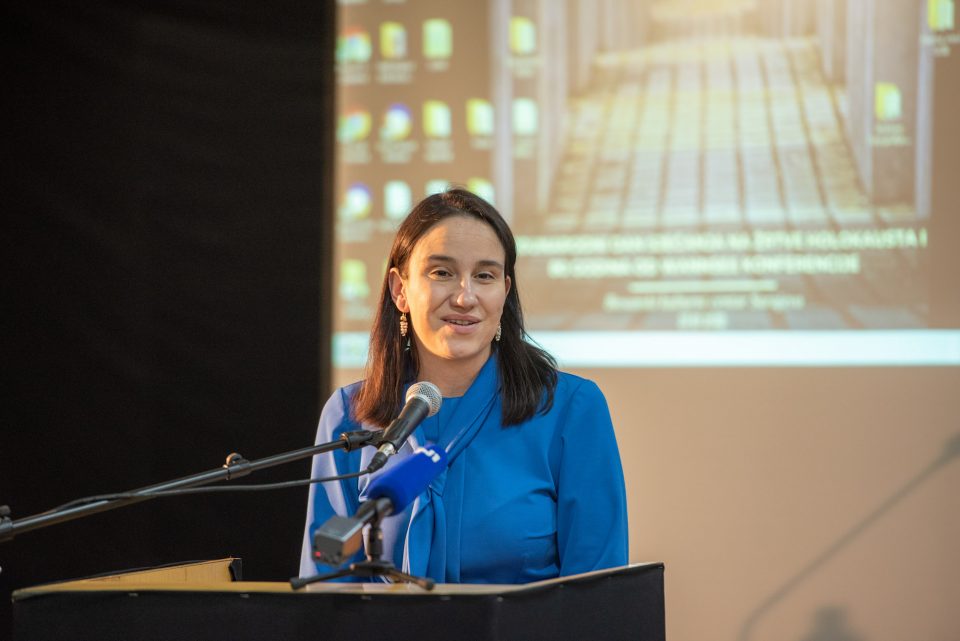
The OSCE Mission to BiH has been supporting the work of the PCRC for a long time, and some of the results of the co-operation have found their place in the “Holocaust & Peace – Lessons from the Past for the Future” manual. This includes the educational program “On the Margins,” which focuses on the position of the Roma community in BiH, as well as the latest documentary “Maglaj, War and Peace.”
“After many years of working on the manual, I am very pleased and honored to attend the promotion with the hope that the workshops will benefit all educators, teachers, and professors who want to work in their classrooms on critical thinking about human rights, cultures of remembrance, and lessons from the past for better the future,” said Alma Žero, Senior Assistant at the Department of English language and literature at the University of Sarajevo and EIHR Coordinator.
The program marking International Holocaust Remembrance Day was organized with a limited number of participants due to COVID-19 restrictions. Nevertheless, it was attended by representatives of civil society organizations, educational institutions, and the association “Movement of Mothers of the Srebrenica and Žepa Enclaves.” Additionally, the diplomatic corps in Sarajevo turned out for the event, including representatives from the British, Italian, Swedish, and German embassies.
Milica Jošić-Milinović, senior assistant in the Department of English at the University of Banja Luka, said she was proud that the result of this long-term project was a manual with workshops that innovatively addressed the Holocaust, human rights, identity, conflict, and cultures of remembrance, which are, above all, practical and interdisciplinary.
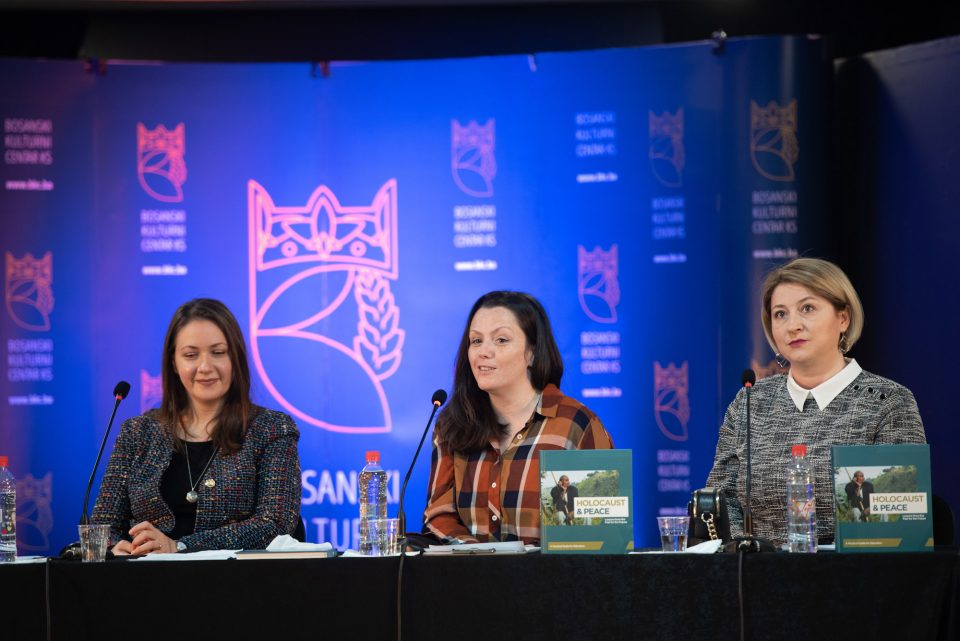
“In one of the two workshops I worked on, The Un (Healed) Scars of Conflict, I combined my love of literature with art by using poetry and photography as a tool to reflect on various conflicts in the past, and also to change the perspective, so the students have the opportunity to revive certain places of conflict through writing poems and pseudo-personal testimonies,” said Jošić-Milinović.
Amina Kaknjo, an English language and literature teacher at the High School of Hospitality and Tourism in Sarajevo, court interpreter, and activist for cultural exchange, pointed out that horrific events from our past clearly prove that we were not good students of our life teacher – history.
“We have to prove again and again more than the obvious truth that all people are the same, equally valuable, that there are no superstitions and superhumans but only fear of the different and unknown. It is important to provide young people with a wealth of information through film, literature, memorial tours, and publications such as this manual, in order to develop empathy for victims and stand firmly on the side of truth and justice tomorrow, clearly distinguishing good from evil,” Kaknjo stated.
As part of the International Holocaust Remembrance Day program, the exhibition “The Wannsee Conference and the Final Solution to the Jewish Question” by Elijas Tauber, Advisor for Culture and Religion to the Jewish Community in Bosnia and Herzegovina, was opened.
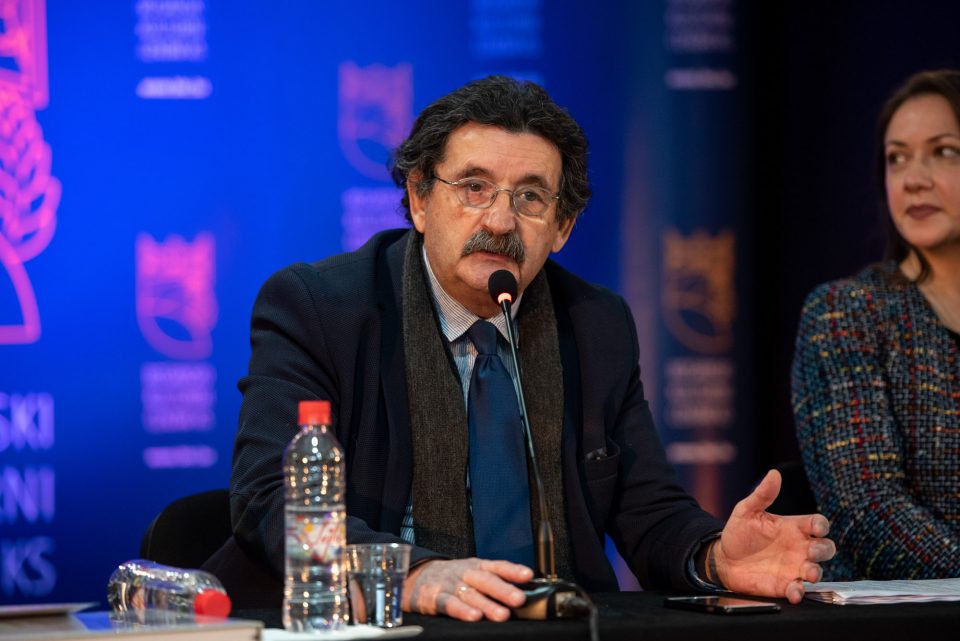
The exhibition was created to mark the 80th anniversary of the Wannsee Conference, which established a plan to exterminate the Jewish people in Europe. The aim of the exhibition is to educate the public about this historical event and its consequences, and to demonstrate the ways in which the mass killings of Jews by Nazi Germany and its associates required the coordination and cooperation of government agencies across Europe.





